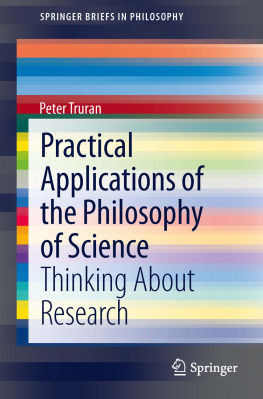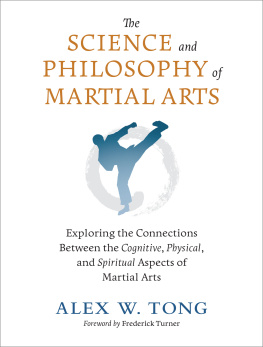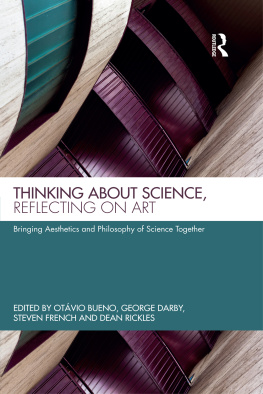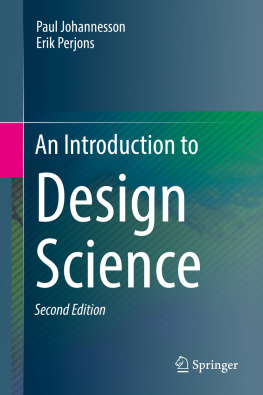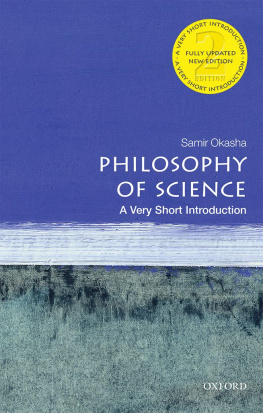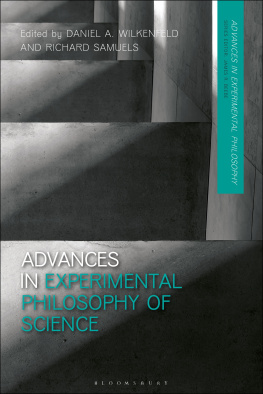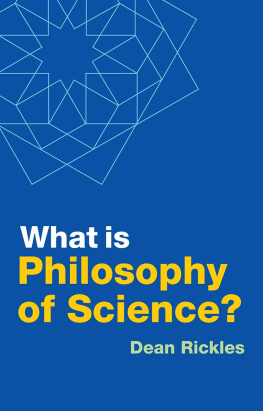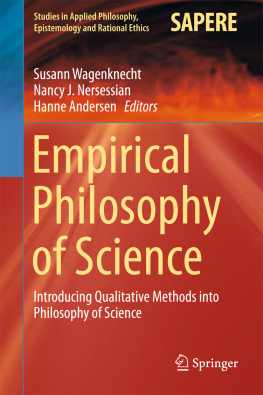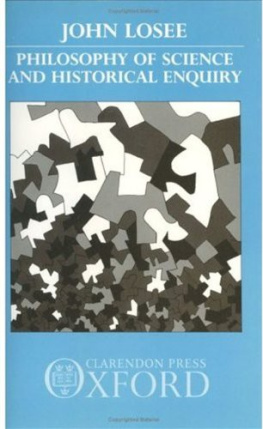Peter Truran SpringerBriefs in Philosophy Practical Applications of the Philosophy of Science 2014 Thinking about Research 10.1007/978-3-319-00452-5_1 The Author(s) 2013
1. Introduction: A Personal Perspective
Science is a messy business. When historians and philosophers of science look at the ways in which scientists do research, they find that science progresses by strokes of genius and by dogged application, with twists and turns and dead ends. Discoveries may involve serendipity or even dumb luck. The vast community of scientists includes those doing groundbreaking science and those doing mundane tasks; it includes some bad scientists and even a few crooks. Those who have the talent and good fortune to make a major discovery oblige the rest of us to see the world in a new way, to bring about what Thomas Kuhn would call a paradigm shift in our thinking. Others do the solid normal science that is the lot of most researchersthose who may not achieve special public recognition but who make essential contributions to the body of scientific knowledge.
One of the tasks of the philosophy of science is to tease out and describe the ways in which good science is done, and to distinguish it from non-science (metaphysics), from pseudoscience (non-science posing as science), and from bad science. It attempts to provide an understanding of scientific research that is based upon studies of historical and contemporary practice, and is shaped by a continuing dialogue with working scientists. However, in addition to offering a descriptive account of science, it may also constitute a view of how science ought to be practiceda normative account. As such, it can provide guidance to those embarking on a research career and those entrusted with the education of young scientists. The philosophy of science, when it speaks directly to scientists, provides inspiration and guidance as to the best state of mind required to approach scientific inquiry. It allows the deployment of logical frameworks that inform research practice, and it gives insight into the processes of problem solving. When it speaks to non-scientists, it helps to break down the walls that have been erected between the cultures of the arts and the sciences, showing that the ways of thinking used in mainstream science can be useful in tackling problems in areas where the application of scientific method has traditionally not been considered appropriate or possible. More recent developments in the philosophy of science reflect on the ways in which scientists behave as a community of researchers and show how scientists engage with society as a whole.
At the core is the need to understand clearly that science is not just a body of knowledge, but is a process of inquiry. Philosophers of science attempt to articulate the ways in which this process is conducted and, in particular, the relationship between observations and theory, the theory-laden nature of observations, and the role of experiment. They investigate the nature of scientific knowledge, its relationship to the world beyond appearances, and its status with respect to other forms of knowledge. They help scientists to recognize and defend science against the claims of pseudoscience.
There is no single way of doing science. Within the philosophy of science it is recognized that there are different problems and methodologies associated with the practice of different scientific disciplines. The philosophy of biology, for example, has its own range of concerns, the debates around evolution and creationism, or behavioral genetics, which have no counterpart in physics. The leading edges of the philosophy of science exhibit a high degree of pluralism, with lively debates about the best means for conceiving issues and addressing problems. However, some these may be highly technical or abstruse, and many of the specialist concerns of professional philosophers may seem to have little relevance for researchers. Nevertheless, there are points where the day-to-day activities of a working scientist may be informed by the philosophy of science so as to confer tangible benefits upon his research practice. Looking back over a career spanning high school teaching, research, and working in the public sector, I can see how my encounter with the philosophy of science shaped my views of how science should be taught and practiced.
As a student, my understanding of science reflected the didactic nature of the sources of my knowledge. I developed some knowledge of the content of science, but I had little awareness of the processes by which the discoveries I read about had been made. My experience of scientific method in the high-school classroom environment was similar to that of most school students of my generationexperiments that were really demonstrations, or investigations that were really laboratory exercises designed to get the right result. This emphasis on content rather than method continued throughout my undergraduate studies in biology and biochemistry. In the laboratory we cut up and made detailed drawings of plants and animals, learned to use a microscope, and followed recipes for the extraction and characterization of enzymes. There was little consideration of the role of experimental design and statistics within the biological sciences. Eventually, in my final year, I completed a small research project that, in retrospect, reflected my complete ignorance of scientific method. I produced a set of uniformly negative results with no understanding of whether they were a true reflection of the phenomenon under study, or due to the inadequacy of the measurement system being used. I ended my university education with a feeling of disenchantment with science.
I first developed an interest in the philosophy of science when working as a high school biology teacher several years after completing my undergraduate studies. I began to understand, for the first time, the ways in which science makes progress. My understanding informed the ways in which I approached my teaching, especially in the area of laboratory-based exercises and investigations. I saw that the students understanding of the principles of scientific methodology provided them with a powerful motivation for carrying out experimental work in a careful and purposeful manner. It gave them a sense of what it is to work as a scientist, developing ideas and testing them rigorously. This was a far cry from the experience of following a teachers instructions by rote in order to achieve a result that was already known by the teacher. This approach enabled me to become a more effective science teacher and it had the side effect of re-kindling my interest in pursuing a career in scientific research. Subsequently, when I resumed my scientific career as a researcher in endocrinology at the University of Wales, I found that my understanding of the philosophy of science provided valuable insights into my doctoral work. It helped me to understand the importance of clearly framed hypotheses, and the development of experimental designs and statistical analyses that took account of predicted results.
Looking back at this experience of learning how to do research in a busy and productive scientific institution, it is clear that what I was doing could be characterized as a process of apprenticeship. More than anything else, this process was shaped by the relationship with my advisor, the master scientist who guided, encouraged, and directed me. Much of what I learned was practical. I watched and listened, and received instruction from experienced technicians. They initiated me into the disciplines of good laboratory practice and the skills required for the manipulation of small volumes of patient samples, reagents, and radioactive materials. Attending scientific meetings helped me to develop an awareness of the unwritten rules of etiquette governing the proceedings. I learned how to write and present research papers, how to submit them to journals for publication, and how to respond to the criticism of editors and referees. I engaged in dialogue with other scientists and experienced the process of generating of ideas and hypotheses in tearooms, in meetings, and at the bench. Most important of all was learning about the standards by which the quality and integrity of scientific work were judged.

